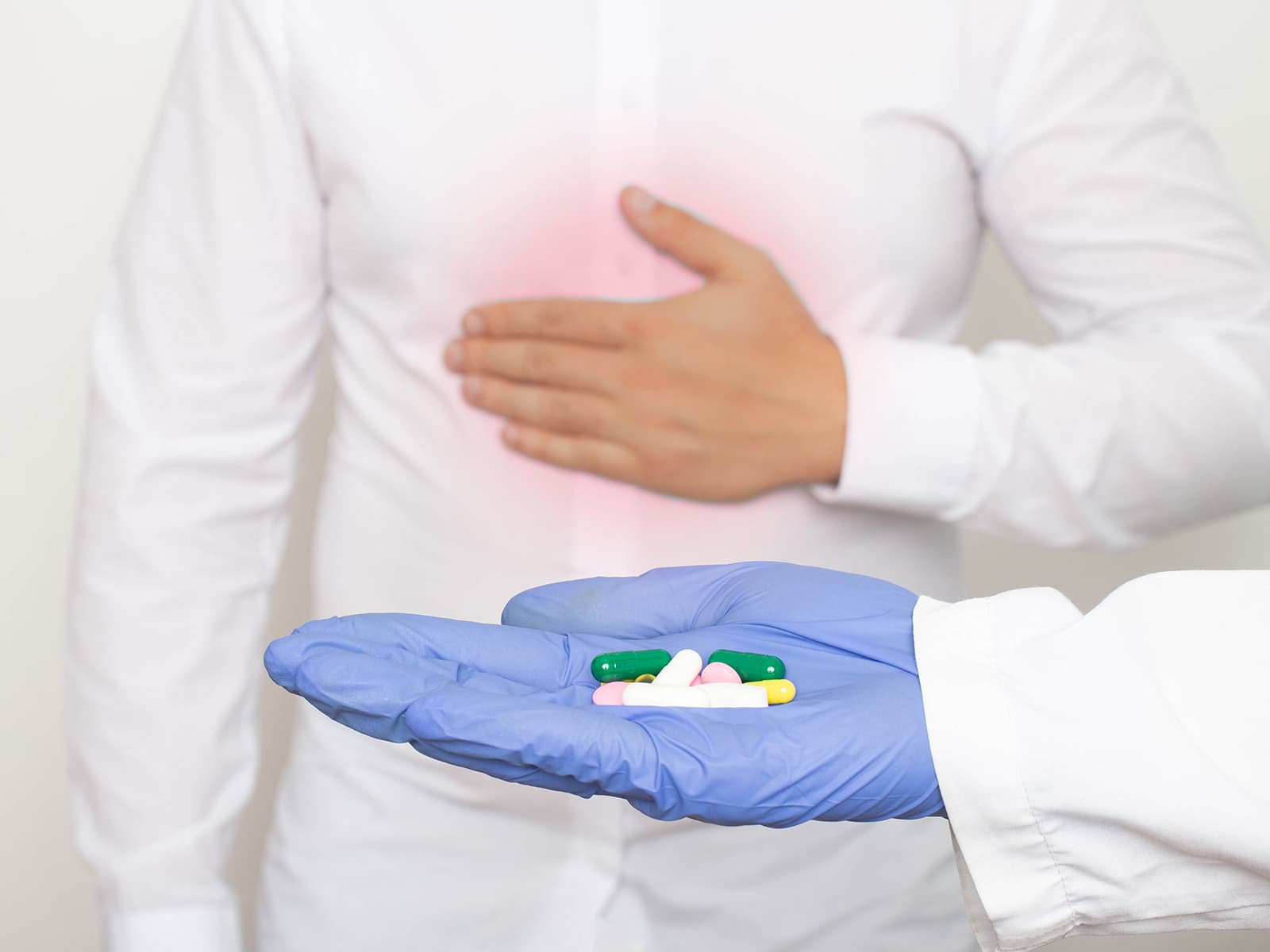
An esophageal ulcer is a break or sore in the lining of the esophagus, the tube that carries food from your throat to your stomach. It can cause pain, bleeding, and scarring if not treated promptly, making swallowing difficult and uncomfortable.
Early on, you may not notice much, but as the ulcer progresses, you might experience:
Several factors can damage the esophageal lining and lead to ulcers:
At GastroDoxs in Cypress, our board-certified gastroenterologist specializes in esophageal ulcer care, offering state-of-the-art diagnostics, personalized treatment plans, and compassionate follow-up. From precise endoscopic evaluation and acid-reducing therapies to lifestyle guidance and infection management, we're committed to your comfort, rapid healing, and long-term relief.
Ready to feel better? Book an Appointment Today!
We've successfully treated more than 5.3K patients, helping individuals improve their digestive health and overall well-being through expert, personalized care.
With over 20 years of experience, GastroDoxs has been a trusted provider of gastroenterology care, focusing on delivering the best outcomes for patients
An esophageal ulcer is a painful sore in the lining of the esophagus, often caused by stomach acid, infection, or certain medications.
Common symptoms include burning chest pain after eating, pain or trouble when swallowing, nausea, unintended weight loss, and in severe cases, vomiting blood or dark material.
Yes. Doxycycline and other medications (like NSAIDs) can irritate the esophageal lining-especially if not taken with enough water-leading to ulcer formation.
CMV esophagitis is a viral infection of the esophagus by cytomegalovirus, which can cause deep, long?lasting ulcers, particularly in individuals with weakened immune systems.
They can be. Without treatment, esophageal ulcers may bleed, cause significant pain, lead to scarring, or form strictures that make swallowing difficult.
Diagnosis is made via endoscopy, where a gastroenterologist uses a small camera to inspect the esophagus and identify any ulcers or damage.
Treatment typically involves proton pump inhibitors (PPIs) to reduce acid, sucralfate to coat and protect the ulcer, and antivirals or antibiotics if an infection is present.
Yes. Soft, bland foods are easier on the esophagus. It's best to avoid spicy, acidic foods, alcohol, and caffeine until the ulcer heals.
With proper medical treatment and lifestyle adjustments, most esophageal ulcers improve within 4 to 8 weeks.
If your symptoms persist, worsen, or recur, consult a board-certified gastroenterologist for accurate diagnosis, personalized treatment, and follow?up care.